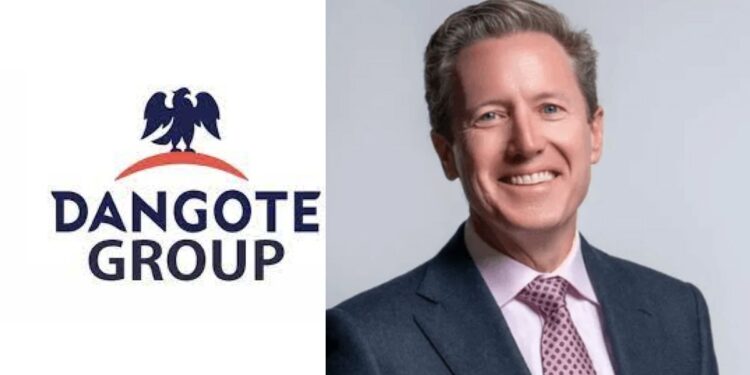Dangote Refinery CEO appointment has emerged.
Newsone Nigeria reports that the Dangote Group has named industry veteran David Bird as Chief Executive Officer of its fuels and petrochemicals division, marking a pivotal leadership move as the Nigerian conglomerate pushes to accelerate its expansion across Africa.
Bird, formerly the head of Oman’s Duqm refinery and instrumental in the development of the Duqm refinery, assumed his new role effective July 2025. His appointment comes as Dangote’s $20 billion refinery complex in Lagos, the world’s largest single-train refinery, continues to ramp up production since commissioning in January 2024.
Africa’s richest man and founder of the Dangote Group, Aliko Dangote, remains chairman of the refining business and CEO of the broader group, which also operates in the cement, fertiliser, and sugar industries.
Bird brings to the table a strategic trading-led mindset, feedstock diversification expertise, and an emphasis on refinery efficiency, all of which will be crucial as the 650,000 barrels-per-day facility attempts to resolve design flaws and achieve full output.
In a statement to S&P Global’s Platts, Bird emphasised his aim to expand the company’s reach beyond Nigeria and to establish it as a leading refining force across Africa.
“My focus will be on maximising refinery output and operational efficiency while advancing the group’s footprint continent-wide,” Bird stated in a LinkedIn post shortly after assuming his role.
Bird’s appointment comes at a critical moment. While the Dangote refinery has made significant strides in disrupting Nigeria’s reliance on imported fuel, displacing major volumes of gasoline imports, the facility has been plagued by “unit upsets” and “design issues,” slowing down its ramp-up phase, according to S& S&P Global.
According to S&P Global’s Commodities at Sea data, Dangote was the country’s only operational refinery in July, exporting roughly 220,000 bpd of petroleum products as Nigerian National Petroleum Company (NNPC) facilities remained offline.
Notably, exports were led by jet fuel (45%) and gasoil (24%), with 30,000 bpd of residual fuel shipped due to limited RFCC processing capacity.
Bird’s leadership will also be crucial in navigating a challenging domestic and regulatory environment. While Nigeria’s petrol subsidy regime has officially been dismantled, market insiders report that unofficial distortions and “rent-seeking” behavior persist. Aliko Dangote has previously criticised trade partners and substandard fuel imports for harming local refinery economics.







